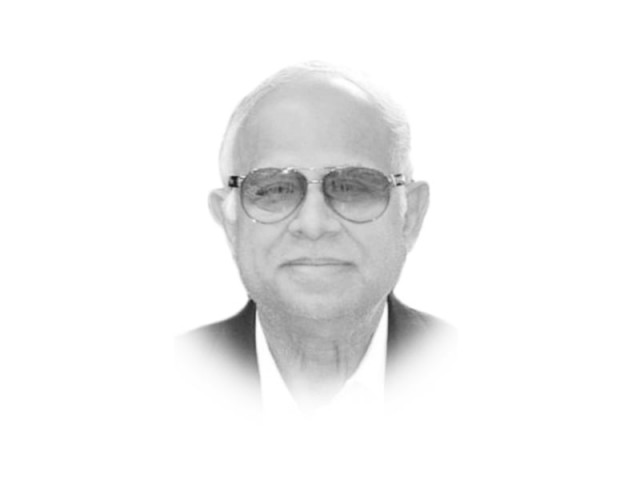Protecting the economic skies
PM’s Czar for Aviation will only get success for Pakistan if he gets his senior management of the CAA and PIA right

To the detriment of both the national interest and the national airline, controversially reciprocal sovereign agreements were not to be enforced for foreign airlines operating to and from Pakistani international airports.
The mission of any airline is to transport passengers and cargo from one point to another, safely, on time and in comfort, while making a profit for the airline. To support this mission, the CAA exists to develop and maintain modern airports with sophisticated ground support equipment and electronics-backed security by organisations like the Airport Security Force. Under the able and sure leadership of the PM’s Adviser on Civil Aviation, Captain Shujaat Azeem, the government is about to annunciate a new National Aviation Policy that will ensure that ‘open skies’ have reciprocity as a fundamental principle and foreign and domestic airlines should not be able take undue advantage of it to the detriment of our flagship airline. Mandatory sanctions must be imposed against those not reciprocating our liberal generosity.
The PIA has remained an enduring problem where it should have been an outstanding success. Its professional management, in both tactical and strategic planning, was replaced through a spur of the moment decision-making motivated mostly out of individual interests and without an in-depth study of economic feasibility based on data from an effective accounting package. Instead of the management controlling expenditures, the expenditures have instead soared by the hiring of an increasing number of management personnel and associated overheads. Instead of being a model of excellence based on teamwork, the PIA became a case study of intrigue. The ‘patronage’ groups are a minority compared with the vast ‘silent majority’ who labour to keep the airline running. Those appointed/promoted because of nepotism and favouritism always have an inferiority complex compared with those having merit. The fear of the hapless majority (and what they endure) is genuine, if they are brilliant and/or competent, merit becomes a disqualifier of whichever group comes into executive authority. Instead of honest and professionally competent managers, capable of taking timely decisions, we only have those who opt for survival, out of economic compulsion of safeguarding their jobs. Not surprising to see some of them fall in line with the crooks.
Airlines must partially switch to newer aircrafts every 10 years or so. However, the PIA’s fleet replacement (and augmentation) was unduly delayed. With 42 aircrafts only, and a ratio of 400 personnel to an aircraft, PIA was overstaffed, to quote the Joint Action Committee of PIA Employees (JACPIAE). Downsizing is required but is not a critical necessity, the challenge is to profitably employ the extra manpower. Mass downsizing must not be attempted without thinking the process through and taking steps to revitalise the PIA, otherwise resultant “affirmative reaction” will be catastrophic for the airline’s operations, putting the great silent majority of airline staff who work hard for a living possibly out of a job.
In contrast to about 200-plus flights a week to destinations in Pakistan, the PIA reciprocally operates only a handful with the Boeing-737 aircraft. By increasing flights to the UAE, Qatar and Bahrain and negotiating code-sharing arrangements, the PIA’s revenues would increase. JACPIAE says the PIA would need 60-70 aircraft to run 160 flights a day, reducing the ratio to 257 employees per aircraft. Fleet replacement by aircraft on lease guzzling less fuel being resorted to now under Captain Shujaat Azeem’s direction according to a phased programme will increase revenues and profits. The Rs32 billion loss suffered by PIA during 2012 (overall Rs100 billion during the PPP regime) and an accumulated debt of two billion dollars has put the Nawaz government into a potential no-win situation.
Separating the Aviation Division from the Ministry of Defence (why was it there in the first place?), PM Nawaz constituted a four-member committee to restructure and reform the PIA, tasking them to examine the challenges being faced and recommend remedial measures. After studying various similar organisations in a cross section of both developed and developing countries among recommendations made, was an immediate need for a watchdog organisation (not a part of the CAA) in the revised National Aviation Policy (NAP).
Drafting a well thought and well-crafted NAP-2014, Captain Shujaat Azeem must be given credit for keeping PIA’s interests as our flagship airline paramount. The question is, can he overcome the powerful aviation mafia consisting of both public and private sector interest? The PM’s Czar for Aviation will only get success for Pakistan if he gets his senior management of the CAA and PIA right.
Published in The Express Tribune, November 27th, 2014.
Like Opinion & Editorial on Facebook, follow @ETOpEd on Twitter to receive all updates on all our daily pieces.



















COMMENTS
Comments are moderated and generally will be posted if they are on-topic and not abusive.
For more information, please see our Comments FAQ